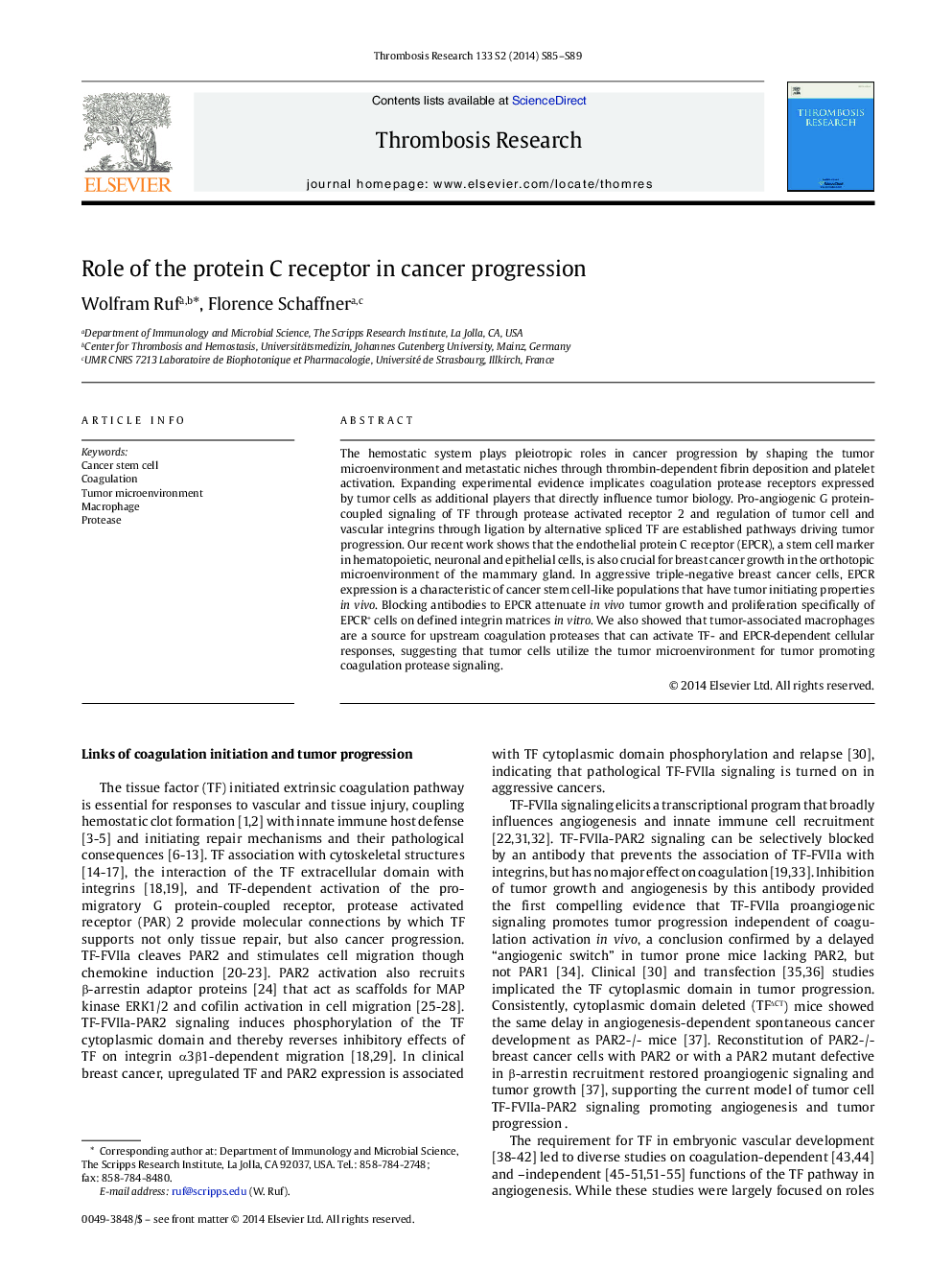| Article ID | Journal | Published Year | Pages | File Type |
|---|---|---|---|---|
| 3027367 | Thrombosis Research | 2014 | 5 Pages |
ABSTRACTThe hemostatic system plays pleiotropic roles in cancer progression by shaping the tumor microenvironment and metastatic niches through thrombin-dependent fibrin deposition and platelet activation. Expanding experimental evidence implicates coagulation protease receptors expressed by tumor cells as additional players that directly influence tumor biology. Pro-angiogenic G protein-coupled signaling of TF through protease activated receptor 2 and regulation of tumor cell and vascular integrins through ligation by alternative spliced TF are established pathways driving tumor progression. Our recent work shows that the endothelial protein C receptor (EPCR), a stem cell marker in hematopoietic, neuronal and epithelial cells, is also crucial for breast cancer growth in the orthotopic microenvironment of the mammary gland. In aggressive triple-negative breast cancer cells, EPCR expression is a characteristic of cancer stem cell-like populations that have tumor initiating properties in vivo. Blocking antibodies to EPCR attenuate in vivo tumor growth and proliferation specifically of EPCR+ cells on defined integrin matrices in vitro. We also showed that tumor-associated macrophages are a source for upstream coagulation proteases that can activate TF- and EPCR-dependent cellular responses, suggesting that tumor cells utilize the tumor microenvironment for tumor promoting coagulation protease signaling.© 2014 Elsevier Ltd. All rights reserved.
